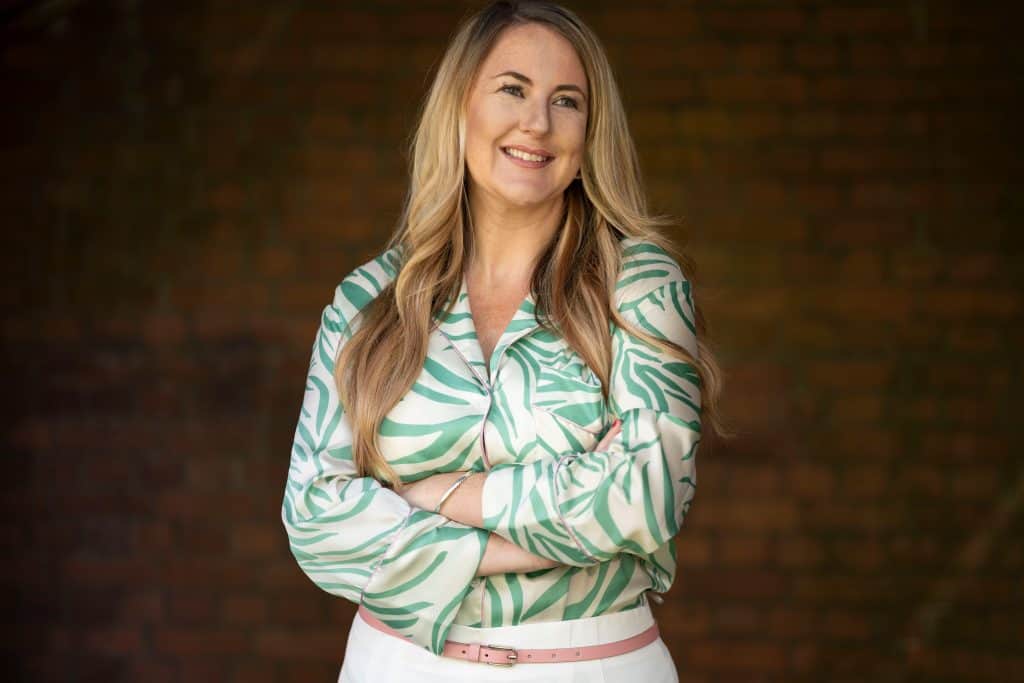Sophie Howe has a uniquely forward-looking job. Since 2016, the Future Generations Commissioner for Wales has been tasked with ensuring her country’s public institutions are taking into consideration how their actions affect Welsh citizens who haven’t been born yet. In that time, Howe has intervened on transport planning, education reform, gender and racial equality, and climate change. She has called for a trial of the four-day working week and has been a vocal advocate for a Universal Basic Income, which will soon be piloted by the Welsh Government.
Howe’s role is thought to be the first of its kind worldwide, but after early promising signs other nations are following Wales’ lead. In September 2021, Scotland announced that it, too, was appointing a Future Generations Commissioner, and in November, UN Secretary General Antonio Guterres endorsed a proposal for a Special Envoy for Future Generations, which could impact the 193 member states. We spoke to Howe about the impacts so far, and those still to come.
How did your role come about?
When the Welsh parliament was first established, there was something called the Government of Wales Act that had a clause in it that said sustainable development should be a “central organizing principle.” But what that meant in practice was not a lot. They were words, not action. The Environment Minister would present a report to the Senate once a year, and all we were really doing is standing still.

One minister was really frustrated by that and she managed to get commitments that there would be, in the next term, legislation for sustainable development. At the time, the UN Sustainable Development Goals were being developed and we held a conversation with people in Wales where we asked: “What’s the Wales you want to leave behind your children, your grandchildren, and future generations to come?” They came up with a set of long-term goals of what they wanted Wales to look like in the future. And then the act was developed around that.
What is the crux of the problem you are trying to address?
You can’t have sustainability without looking at the long-term impact of the things that you do. It’s like applying a “good ancestor” test. Are the things we’re doing now going to screw over the next generation or the generation after?
We think Wales has got a model that the rest of the world should follow. It’s all about really addressing short-termism in governance and government. And that short termism is endemic in every government across the world. That’s why we’re in the climate crisis. It’s why you’ve got widening inequality and you’ve got life expectancy in many places plateauing. So we’re saying that we think, across the world, there needs to be stronger mechanisms to force governments to think long term.
What are the biggest issues that need to be tackled?
The big one, of course, is climate change. We’ve put more carbon into the atmosphere knowingly than any other time during human history. We haven’t cared, we’ve done it anyway, mainly because of economic benefits, and we haven’t wanted to make tough decisions.
With the pandemic situation, we were all kind of surprised by this pandemic. But if you look at the global risk registers of future risk, the risk of a pandemic has been on there for quite a number of years. So we can’t say that we didn’t know it was a risk, but we were completely unprepared for it. We have to have a society that is prepared.
And if you think about the aging population: In Wales, by 2036, we’re going to have double the number of over 65, and over 80s, high numbers of people living with dementia, and so on. Yet we’ve got a care system which already can’t cope with that. Who is thinking about the long term? How are we going to make sure it’s not catastrophic in the future?
When you start joining all of those dots, we should be looking for solutions to these problems in an integrated way.
What exactly do you do day to day?
I spend a lot of time meeting with government ministers and officials to talk through new policy areas they might be exploring. I commission research, such as I’ve done on the reduced working week and universal basic income. Recently I’ve worked with housing associations to try and bring them together with the government to find a solution about how jointly they could fund decarbonization.
Weighed down by negative news?
Our smart, bright, weekly newsletter is the uplift you’ve been looking for.A lot of it is building a movement. When the act first came in, not many people knew about it. They were like: “What is this?” But now, there’s an increasing number of organizations who aren’t even legally required by the duty, but are signing up to its principal. Even parts of the private sector want to get on board with it, because it’s a long-term plan. We’ll be working with the Welsh Football Association, because they want to build their strategy around football’s contribution to the wellbeing goals. A lot of it is providing advice. A local council might want to have a new strategy on food poverty — how would they do that through the lens of each generation back? It’s sort of promotional, a lot of advice and support.
Are current political systems inherently short-sighted?
That is the underlying problem. Politicians are interested in what they’re going to be able to do in the next five years in terms of how it’s going to get them elected or not. So in Wales, our act is trying to to accept that the seven long-term goals don’t change from one political cycle to the next. Our goal of a prosperous Wales takes us away from an obsession with GDP towards the focus on wellbeing.
It talks about a productive, innovative, low-carbon society, one that uses resources efficiently and acts proportionally on climate change. It talks about skills and access to decent work. There are legal obligations on Welsh Ministers to set these objectives which maximize their contribution to these goals. How they go about doing that is what changes during political cycles, but the goal itself doesn’t change. We’ve got as close as I think you possibly can, in a democratic system, to a long-term approach, and we think that’s what’s needed across the world.
What have you achieved since 2016?
The earliest test of the legislation was when the Welsh government got powers it didn’t previously have, like the ability to borrow money. There was a proposal to spend the entire borrowing capacity on building a 13 mile stretch of motorway to deal with the problem of congestion around a place called Newport. I intervened in that and asked how the interests of two generations had been applied to that decision. How was it in line with prosperous Wales? How is it aligned with our goals around ecological resilience? The road was going through a nature reserve. And 25 percent of the lowest income families in the region don’t even have access to a car. The government changed its mind on the basis of the Future Generations Act and stopped that road. Instead, what we’re seeing is a new transport strategy for Wales, which puts roads right at the bottom of the priority list. There’s a moratorium on all road building; every scheme that’s been approved has stopped.
We’ve also reformed the school curriculum, so that it’s in line with the Future Generations Act. So the outcomes from our school curriculum are not to learn Latin, but to create healthy, active and confident learners, ethical and informed citizens, creative and enterprising individuals, because those are the sorts of skills that are going to be critical for the future.
I’ve been advocating a universal basic income, which was seen as a kind of pie-in-the-sky idea two years ago. But when you start talking about the long-term health impacts of poverty, the changing nature of work, all these people working in the gig economy, and not having a safety net, then a UBI actually becomes quite a sensible conversation. And two weeks ago, the Welsh Government announced their first pilot on a universal basic income.
We’ve massively increased investment in improving the quality of people’s homes to meet carbon emissions targets, and to improve people’s health and to create jobs in the low-carbon economy. We’ve got a strategy to be a zero-waste nation by 2050. I could go on and on.
What’s been difficult about the job?
I can’t force anyone to do anything or stop anyone doing anything. I’m unelected. My job is to hold to account, as far as the role can, how the act is being implemented. My role is to be their conscience, the conscience of future generations. And to call them out when they’re not thinking about future generations. I have powers of review. I can look at a particular public body or a particular issue, and give recommendations on ways that they should improve, which they are legally required to respond to. But ultimately, it’s up to politicians to operate within the legal framework that they have, because they are the ones who are elected.
What we’re trying to do here is the biggest cultural change program that Wales has ever seen. Everything gone in the past is almost the opposite of what we’re trying to do with the Future Generations Act. So what I’ve spent a lot of time doing is trying to unpick a lot of that stuff, which is the system, which works against us. That’s been the biggest challenge. But actually, we have these new obligations now, and we need to do things differently. That’s quite a slow process. But things are changing. You’ve got to start somewhere.
What’s next, after 2023? Will you run for re-election? Will the role develop?
My term comes to an end next year, and there’ll be a new commissioner. But part of our mission is to take the Future Generation concept to other parts of the world. So at the moment, there’s a private member’s bill going through the UK Parliament to have a Future Generations Act for the UK. There’s also legislation going through the Scottish Parliament. There’s interest from the Irish government in something similar. I’m in Germany at the moment talking to the regional government in Gutenberg about how they could do something similar and the UN Secretary General, we’ve been working with him around a UN declaration on a Special Envoy for Future Generations. I’ll continue on a mission to see how more countries across the world can adopt this approach and an increasing number are really interested.









